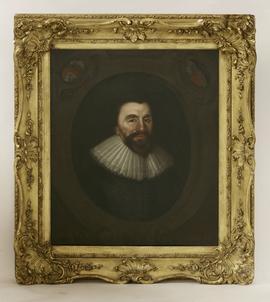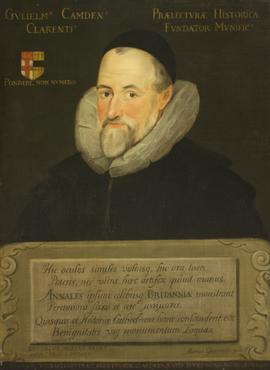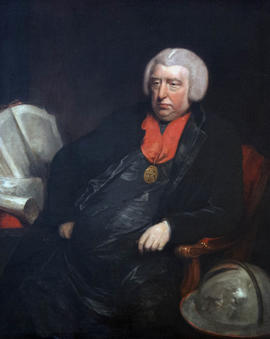SOUTH, ROBERT, son of Robert South, Hackney, Middlesex, merchant, and his second wife Elizabeth, eldest dau. of Capt. John Berry, Lydd, Kent; b. 4 Sep 1634; adm.; was “up School” on the morning of 30 Jan 1648/9, when “the King was publicly prayed for … but an hour or two (at most) before his sacred head was struck off “ (South, Sermons, 1823, iii, 411); KS 1650; elected head to Christ Church, Oxford 1651, matr. 11 Dec 1651, Westminster Student to 1670 [check]; BA 24 Feb 1654/5; MA 1657 (incorp. Cambridge 1659); BD and DD 1663 (incorp. Cambridge 1664); ordained 1658; Public Orator, Oxford Univ. 10 Aug 1660 – Nov 1677, res.; Chaplain to Earl of Clarendon, Chancellor of Oxford Univ.; Prebendary of Westminster from 30 Mar 1663; Rector of Llanrhaiadr yn Mochnant, Denbighshire 1666/7 – still 1678 (when disp. to hold with R. Islip); Canon of Christ Church, Oxford, from 29 Dec 1670; went to Poland as Chaplain to Laurence Hyde (afterwards Earl of Rochester), Ambassador there 1676-8; Rector of Islip, Oxfordshire, from 1678; Chaplain in Ordinary to Charles II; attacked William Sherlock, Master of the Temple, in his Animadversions, 1693, and accused Sherlock of Tritheism 1695; declined Bishopric of Rochester and Deanery of Westminster on death of Thomas Sprat in 1713; an eloquent and pithy preacher, with a gift of humour; rebuilt chancel and rectory at Islip at his own expense; bequeathed his property in Caversham, Oxfordshire, and Kentish Town, Middlesex, to Dean and Chapter of Christ Church, Oxford, upon trust for certain charities named in his will, the surplus of the yearly income to be paid to six poor scholars of Christ Church who had been “bred and brought up in Westminster School, commanly called the King’s or Queen’s Scholars [check] there”; an original trustee of Busby’s will; several editions of his collected sermons have been published; d. unm. 8 Jul 1716. After lying in state four days in Jerusalem Chamber, his body was carried into College Hall, where John Barber (qv), Captain of the KSS, pronounced a funeral oration over it; buried at the foot of the steps before the altar, Westminster Abbey, near the grave of Richard Busby (qv), with monument facing Poets’ Corner. DNB.
By his will dated 30 Mar 1713/4 (proved 24 Jul 1716) he left his estates at Caversham, Oxfordshire, and at Kentish Town, Middlesex, after the death of his housekeeper Margaret Hammond and the expiry of her life interest in them, to the Dean and Chapter of Christ Church, Oxford, upon trust to pay out of the income “to six poor scholars for ever twenty nobles apiece by even and equall portions … and that the said poore scholars be all of them of Christ Church in Oxon. ; but bred and brought up in Westminster Schole commonly called the (King’s or Queen’s) Schole there and these likewise to be of the sole choice and nomination of the Dean and Chapter of Christ Church and their successors for ever”. By the ordinances annexed to the Christ Church (Oxford) Ordinances Act 1867, the income was directed to be applied, with other funds, for the maintenance of the Westminster Junior Studentships.
According to E.G.W.Bill, op.cit., p.104-5, “the foundation had a shaky start, and the first appointment of an exhibitioner was not made until 1738”. As Bill records, “the value of the exhibitions by themselves was too small to have much effect, but South was often held with one or more of the Lee exhibitions”. The foundation remained “incapable of improvement until the Dean and Chapter were empowered to grant building leases of the Kentish Town estate in 1851”.



